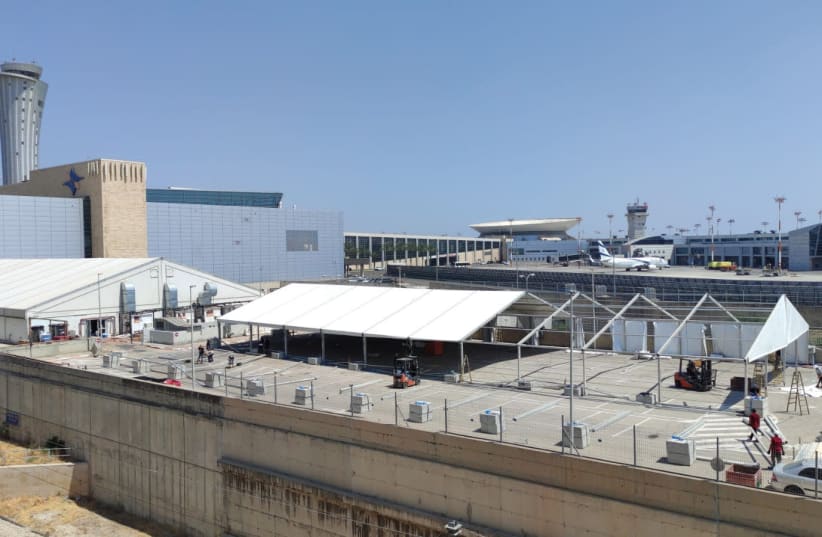The announcement, which came from the Defense and Transportation ministries, emphasized how this will allow for a much greater number of tests to be administered ahead of the upcoming summer months.
The tent will be about 1,500 sq.m. Construction began on Friday, will pause for Shabbat, and resume on Saturday night, in order to have the site functional already by next week.
"After a year-and-a-half of a global pandemic, we began the construction of an extensive testing site at Ben-Gurion Airport to cut waiting times and allow for quick results," Prime Minister Naftali Bennett tweeted on Friday morning.
"Things are moving!" he added, thanking Transportation Minister Merav Michaeli, Health Minister Nitzan Horowitz, Defense Minister Benny Gantz and Interior Minister Ayelet Shaked.
לאחר שנה וחצי של מגיפה עולמית,התחלנו הלילה להקים מתחם בדיקות מורחב בנתב״ג, כדי לקצר תורים ולאפשר בדיקות מהירות. דברים זזים!כל הכבוד ל @MeravMichaeli @NitzanHorowitz @gantzbe @Ayelet__Shaked pic.twitter.com/mNrzCMRQeM
— Naftali Bennett בנט (@naftalibennett) July 2, 2021
"This new testing site is absolutely necessary in the fight for the health of the public and defending Israel's borders against the virus," said Michaeli, adding that this move is similar to the government's decision to divert incoming passengers to Ben-Gurion's Terminal 1.
Michaeli, whose ministry proposed the idea in the first place, said that this move comes in light of the expected air traffic as summer nears.
Though June marked the month with the lowest number of cases since the pandemic began in March 2020 with only six deaths, the infectious spread of the Delta variant made headlines
"Expanding the testing capacity at Ben-Gurion Airport as summer approaches is an extremely significant tool in the fight for the health economic well-being of Israel's citizens," said Gantz.
During the first two weeks of June, there were less than 200 cases in Israel. Two weeks later, after the first of the new outbreaks, Israel's Health Ministry registered about 2,000 active cases. The outbreaks began in several Israeli schools.
About 0.5% of the 63,000 tests administered on Thursday returned a positive result, with nearly 300 new cases reported. Rossella Tercatin contributed to this report.
